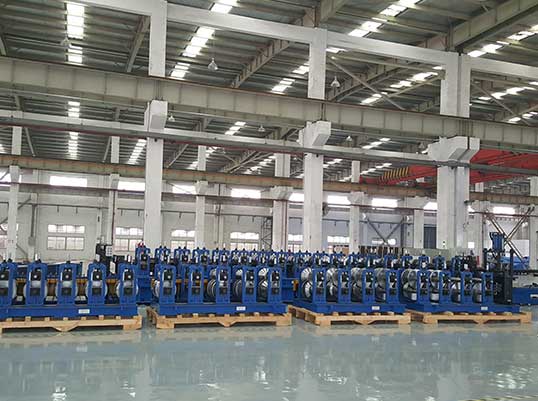Navigation Menu
Contact Us
- Email:
- info@wxavatar.com
- Address:
- Yurong Village, Yuqi Street, Huishan District, Wuxi, China.
Release Date:Mar 18, 2025 Visit:79 Source:Roll Forming Machine Factory
1. Precision and Consistency
High Accuracy: Computer-controlled (CNC) systems produce brackets with tight tolerances (±0.1–0.5 mm), ensuring perfect fitment with rails, panels, and fasteners.
Uniform Quality: Automated processes eliminate human error, guaranteeing identical brackets for seamless assembly, even in large installations.
2. Cost Efficiency
Reduced Material Waste: Optimized cutting and forming minimize scrap, lowering raw material costs.
Lower Labor Costs: Automation replaces manual bending, punching, and welding, cutting labor expenses.
Economies of Scale: High-speed production (e.g., 30–100 brackets per minute) reduces per-unit costs for bulk orders.
3. Speed and Scalability
Rapid Output: Machines operate continuously, producing thousands of brackets daily to meet deadlines for solar farms or residential projects.
Quick Changeovers: Modular tooling and pre-programmed CNC settings allow switching between bracket designs (e.g., L-shape, U-shape) in minutes.
4. Enhanced Durability
Material Integrity: Cold roll-forming preserves the strength of metals (e.g., galvanized steel, aluminum) without heat-induced weaknesses.
Corrosion Resistance: Precise forming protects coatings (e.g., zinc) from damage, ensuring long-term outdoor performance.
5. Customization Flexibility
Adaptable Designs: Easily adjust machines to produce brackets for diverse applications (rooftops, ground mounts, carports) or regional standards.
Complex Geometries: Create features like embossed holes, flanges, or angled edges to meet specific load or mounting requirements.

6. Sustainability
Energy Efficiency: Modern machines use regenerative drives and low-power modes to reduce energy consumption.
Recyclable Materials: Brackets made from steel or aluminum are 100% recyclable, supporting eco-friendly manufacturing.
7. Improved Safety
Reduced Workplace Risks: Automation minimizes worker exposure to sharp edges, heavy lifting, or repetitive tasks.
Compliance: Brackets meet international standards (e.g., UL, TÜV, IEC) for structural safety, wind/snow loads, and fire resistance.
8. Competitive Edge
Faster Time-to-Market: Quick production enables manufacturers to fulfill orders faster, securing contracts in the booming solar sector.
Innovation: Enables advanced designs (e.g., tilt-adjustable or floating solar brackets) to meet evolving industry needs.
Industry Impact
Solar Farms: Mass-produced brackets cut installation time and costs for utility-scale projects.
Residential Rooftops: Ensures leak-proof, durable mounts for home solar systems.
Global Growth: Supports the rapid expansion of solar energy infrastructure by providing affordable, reliable components.
Ending
A solar bracket forming machine is a cornerstone of modern solar manufacturing, combining precision, speed, and cost-effectiveness to produce high-quality mounting components. By enabling scalable, sustainable production, it plays a vital role in advancing the global transition to renewable energy while ensuring long-term reliability and safety for solar installations.